Principal Investigators and Program Directors
Below lists investigators who are currently leading funded projects at Sheps or direct one of the Center’s programs.
For a list of all current Research Fellows, click here.
_____________________________________________________________
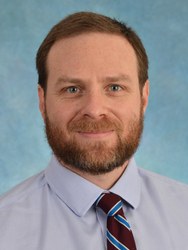
Seth A. Berkowitz, MD, MPH
Department of Medicine, Assistant Professor
Dr. Berkowitz’s research interests focus on socioeconomic barriers to chronic disease management, with a specific emphasis on food insecurity and diabetes. He is interested in observational and interventional approaches to studying these issues, including using methods from the causal inference literature, pragmatic randomized trials, rigorous evaluation strategies, and incorporating machine learning and other data adaptive methods into clinical and public health research.
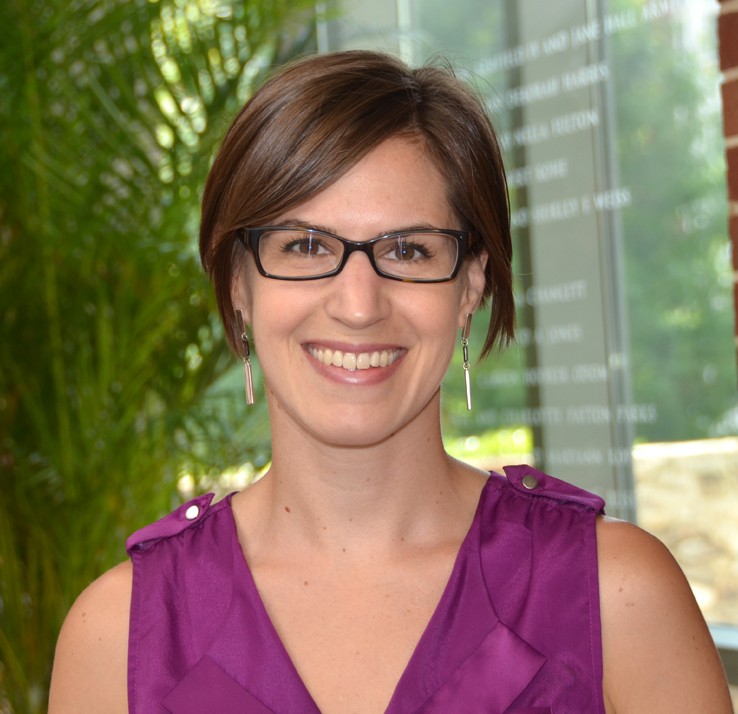
Sarah Birken, PhD
Department of Health Policy and Management, Assistant Professor
Sarah Birken, PhD, is an Assistant Professor in the Department of Health Policy and Management at the Gillings School of Global Public Health, Director of the Program on Implementation and Organization Research (PrIOR) at the Cecil G. Sheps Center for Health Services Research, and an Associate Member of Lineberger Comprehensive Cancer Center at the University of North Carolina at Chapel Hill. Dr. Birken’s research focuses on translating evidence into practice. Specifically, Dr. Birken studies middle managers’ role in implementing evidence-based practices; the implementation of innovations in cancer care; and the selection and application of implementation theories.

Alison Brenner, PhD, MPH
Department of Medicine, Assistant Professor
Alison Brenner is an Assistant Professor in the UNC Division of General Internal Medicine and Clinical Epidemiology and a UNC Lineberger Comprehensive Cancer Center member. She serves as the Deputy Director of the Decision Support Lab at the Cecil G. Sheps Center for Health Services Research and the Carolina Cancer Screening Initiative at the Lineberger Comprehensive Cancer Center. Her research interests include development and implementation of interventions aimed at improving delivery of appropriate preventive services in primary care, with a particular emphasis on cancer screening and shared decision-making.

Wendy Brewster, MD, PhD
Center for Women’s Health Research, Director
Wendy R. Brewster MD, PhD is an associate professor and has been the Director of the UNC Center for Women’s Health Research in the Department of Obstetrics and Gynecology since 2008. Her areas of research include gynecologic oncology, surgery in gynecologic malignancies, premalignant lesions of the cervix, common gynecologic problems, advanced laparoscopy, and robotic-assisted surgery.

Timothy Carey, MD, MPH
Department of Medicine, Professor
Dr. Carey came to the University of North Carolina at Chapel Hill as a Robert Wood Johnson Clinical Scholar and received his MPH in epidemiology from UNC. His research interests include clinical epidemiology, access to care, and health services research, with a recent focus on health informatics and distributed data systems. He is also co-PI of UNC’s NIH Clinical and Translational Science Award (CTSA). With a specific emphasis on back pain, he has extensively examined the epidemiology of musculoskeletal illnesses, and also explored the patterns, quality and outcomes of care for patients in multiple settings. Additional interests include evidence-based practice and health disparities.

Shannon Carson, MD
Pulmonary and Critical Care Medicine, Professor
Dr. Carson joined the faculty of the University of North Carolina School of Medicine in 1999 and currently serves as Professor and Chief of the Division of Pulmonary and Critical Care Medicine. His research interests include health services research and clinical trials in critical illness and comparative effectiveness research in COPD. His research is supported by grants funded by the NHLBI, NINR, and PCORI.

Crystal Cené, MD, MPH
Department of Medicine, Associate Professor
Dr. Cene’s research interests include strategies to support engagement of family members in the care of patients with chronic illnesses, particularly cardiovascular risk conditions; patient-provider communication and engagement; strategies to promote health equity and eliminate health disparities by addressing social factors that influence health behaviors and outcomes; social networks and health.
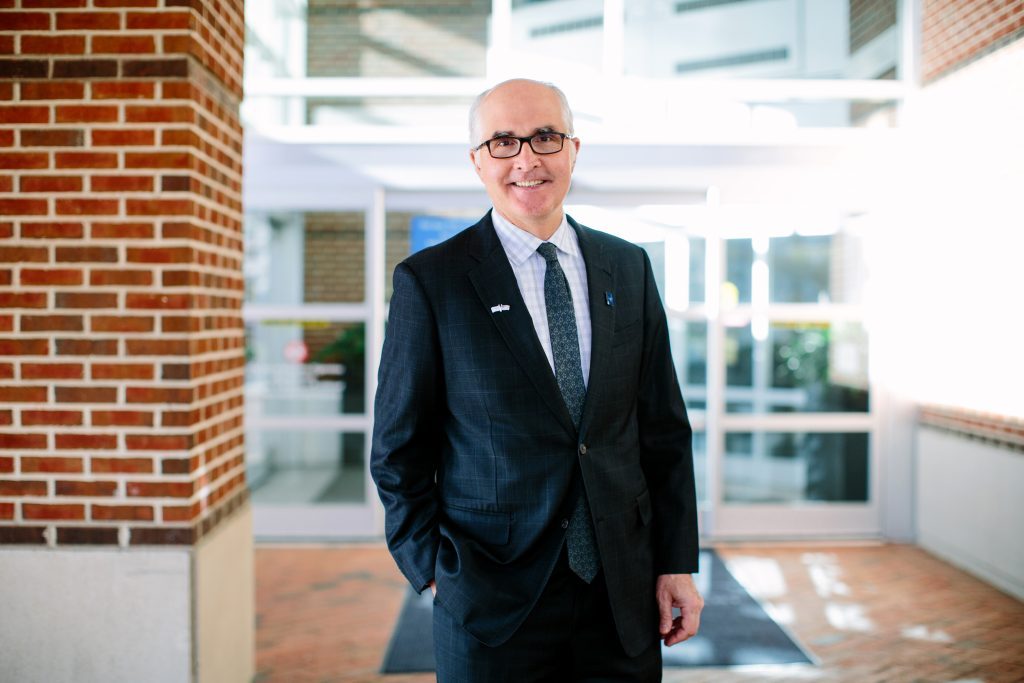
Paul Chelminski, MD, MPH, FACP
Department of Allied Health Sciences, Professor
Dr. Paul Chelminski is a professor of medicine and an experienced educator of medical students and resident physicians at the UNC School of Medicine. Since 2001, Dr. Chelminski has practiced primary care in the UNC Internal Medicine Clinic. He has extensive experience in collaborative practice with physician assistants, clinical pharmacists, and nurse practitioners. In this setting, he has been engaged in inter-professional education and mentorship as well. Dr. Chelminski is a national expert on treating chronic pain in primary care. He has spoken and published extensively on this.

Giselle Corbie-Smith, MD, MSc
Department of Social Medicine, Professor
Dr. Corbie-Smith is Professor of Social Medicine and Medicine at the School of Medicine and directs the Program on Health Disparities at the Cecil G. Sheps Center for Health Services Research at UNC-Chapel Hill and has been a member of several national and regional committees including Institute of Medicine committees examining the ethical issues of involving minority communities and underserved groups in housing-related research and on standards for systematic reviews in comparative effective research. Her empirical work, using both qualitative and quantitative methods, has focused on the methodological, ethical, and practical issues faced by mandated inclusion of minorities in research and the need for this research to address racial disparities in health.

Samuel Cykert, MD
Department of Medicine, Professor
Dr. Cykert is a Professor of Medicine at UNC-CH in the Division of General Internal Medicine and Clinical Epidemiology. He also serves as the Director of the UNC School of Medicine Program on Health and Clinical Informatics. Combining his research training and interest in health policy, he has been heavily involved in projects that address health disparities and quality improvement in both cancer treatment and chronic care management. As part of this effort he currently serves as PI or co-PI, on several large, multi-site grants including the CDC sponsored study, Carolina Heart Alliance Networking for Greater Equity (CHANGE).
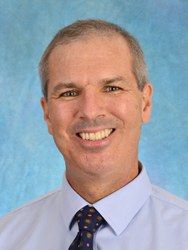
Darren DeWalt, MD, MPH
Department of Medicine, Professor
Darren A. DeWalt, M.D., M.P.H. is Chief of the Division of General Medicine and Clinical Epidemiology and Professor at the University of North Carolina at Chapel Hill (UNC-CH). Dr. DeWalt is an expert in primary care and innovative models of care delivery and financing. His research spans new models of care, health disparities, health literacy, quality improvement, and patient reported outcomes. From 2014-2016, he led a group at the Center for Medicare and Medicaid Innovation to help support new models of care delivery and financing. Dr. DeWalt has a long history of research and quality improvement at local, regional, and national levels.

Marisa Domino, PhD
Department of Health Policy and Management, Professor
Marisa Elena Domino, PhD, is a professor in the Department of Health Policy and Management in the Gillings School of Global Public Health; she is also director of the Program on Mental Health and Substance Abuse Systems and Services Research at the Cecil G. Sheps Center for Health Services Research. Dr. Domino’s research interests include the economics of mental health, agency relationships among physicians, patients and insurers, the diffusion of new technologies and the public provision of health care and health insurance to low-income populations. Dr. Domino is deeply interested in vulnerable populations and she has created a research agenda throughout her career which examines the efficiency of health care policies in low income and disabled populations.

Katrina Donahue, MD, MPH
Department of Family Medicine, Professor
Dr. Donahue is a Professor and Vice Chair of Research at the University of North Carolina (UNC) Department of Family Medicine. She co-directs the North Carolina Network Consortium, a meta-network of seven practice-based research networks and four academic institutions in North Carolina. Dr. Donahue has a strong interest in primary care practice redesign, chronic disease care and prevention, health behavior change and collaborations among public health and primary care.

Cynthia Feltner, MD, MPH
Department of Medicine, Assistant Professor
Dr. Feltner is associate director of the RTI-UNC Evidence-based Practice Center as well as an assistant professor in the Department of Medicine at UNC and Director of the Health Care and Prevention track of the Public Health Leadership Program at the UNC Gillings School of Global Public Health. Dr. Feltner has a special interest in chronic disease prevention and clinical epidemiology. In addition to her clinical work seeing patients at the UNC Ambulatory Care Center, Dr. Feltner plays an active role in the education of medical students, residents and fellows.

Erin Fraher, PhD, MPP
Department of Family Medicine, Professor
Sheps Program on Health Workforce Research & Policy, Director
Dr. Fraher is an internationally recognized expert on health workforce research and policy. Her research focuses on interprofessional teams in new models of care, developing rigorous methodologies to project how many health workers will be needed under different possible “futures,” and using life course theory to better understand health professionals’ career trajectories. Dr. Fraher’s recent work has highlighted the need to reconfigure health workforce education, practice, and regulation to better align with population health needs, particularly in rural and underserved communities. She is frequently called upon by legislators and staff, government officials, health professions educators, health care employers, and licensing boards to conduct and interpret analyses on a wide variety of emerging health workforce topics, demonstrating her extensive experience translating rigorous academic research into actionable advice and strategy for policy makers.

Carol Golin, MD
Departments of Medicine and Health Behavior, Professor
Carol Golin is a physician, director of the Social and Behavioral Research Core at the UNC Center for AIDS Research, and a professor in the Department of Health Behavior at the Gillings School of Global Public Health and in the UNC Department of Medicine. She is engaged in research on the development and assessment of behavioral interventions to enhance compliance and health care for persons living with HIV/AIDS and access to care for incarcerated persons.

Sherri Green, PhD
Department of Maternal and Child Health, Associate Professor
Green works at the intersection of health and behavioral health for women, children, and families affected by substance use disorders and chronic health conditions amplified by experiences of trauma and poverty and rural access to care barriers. Currently, she is the PI for a 3-year AHRQ study looking at barriers for rural primary care providers to offer medication assisted treatment for opioid use disorders. Her overall work includes utilization focused evaluation, public health policy research, and efforts to bridge evidence-based research and practice through technical assistance, community collaboration, executive leadership coaching, training, and education.

Sandra B. Greene, DrPH
Department of Health Policy and Management, Associate Professor
Dr. Greene holds a DrPH in biostatistics from the University of North Carolina at Chapel Hill where she is Professor of the Practice in Health Policy and Management in the Gillings School of Global Public Health. She teaches courses in research design and methodology for the DrPH program in Health Leadership. She also is a Senior Research Fellow and Co-Director of the Program on Healthcare Finance at the Cecil G. Sheps Center for Health Services Research. Her research interests include health insurance, the business case for quality, patient safety, managed care and health services research involving insurance claims data.

Jacquie Halladay, MD, MPH
Department of Family Medicine, Associate Professor
Dr. Halladay is an Associate Professor in the department of Family Medicine and a research fellow at the Cecil G Sheps Center for Health Services Research. She is the Co-Director of the North Carolina Network Consortium (NCNC), a statewide Practice Based Research Network and is board certified in Preventive Medicine and Obstetrics and Gynecology. Dr. Halladay’s research interests include working in ambulatory practices with investigative and clinical teams who collectively aim to enhance care delivery and outcomes for patients with chronic conditions, specifically hypertension, asthma, and tobacco use.

Laura C. Hanson, MD, MPH
Department of Geriatric Medicine, Professor
Dr. Hanson is a tenured Professor in the Division of Geriatric Medicine, Department of Medicine at the University of North Carolina – Chapel Hill. She is the Director of the UNC Palliative Care Program, an interdisciplinary program of palliative care services and related research and teaching. She leads a program of research focused on interventions to improve quality of palliative care for persons with advanced dementia and other serious illnesses. In addition, she has expertise in development of quality measures for hospice and palliative care, including collaboration with Research Triangle Institute on the national Hospice Item Set. With Antonia Bennett, she co-leads the Measurement Core for the NINR-funded Palliative Care Research Cooperative group.

Michelle Hernandez, MD
Department of Pediatrics, Associate Professor
Dr. Hernandez is a pediatric allergist and immunologist, with clinical research interests in severe asthma, immunodeficiency and auto-inflammatory syndromes. She heads several clinical studies focused out of the NC Children’s Allergy & Asthma Center in Raleigh, NC examining patient-reported outcomes of asthma control in children, the use of technology to improve asthma management, and evaluating the effectiveness of inhaled corticosteroid therapy during asthma exacerbations. Dr. Hernandez recently assumed the role of Director of NC Child Health Research Network as part of the NC TraCS Institute.

Mark Holmes, PhD
Department of Health Policy and Management, Professor
Mark Holmes, PhD, is a Professor in the Department of Health Policy and Management in the University of North Carolina Gillings School of Global Public Health and Director of the Cecil G. Sheps Center for Health Services Research, where he is also the Director of the North Carolina Rural Health Research and Policy Analysis Center and the Co-Director of the Program on Health Care Economics and Finance at the Cecil G. Sheps Center for Health Services Research. His interests include hospital finance, rural health, workforce, health policy, and patient-centered outcomes research.
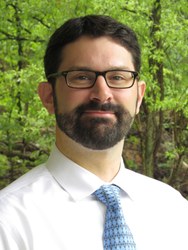
Daniel E. Jonas, MD, MPH
Department of Medicine, Associate Professor
Dr. Jonas is Deputy Director for Research of the Sheps Center, Director of the Program on Medical Practice and Prevention, and Co-Director of the RTI-UNC Evidence-based Practice Center (EPC). His areas of expertise include primary care, preventive services, unhealthy alcohol use, evidence-based medicine, and individualized therapy. He has led clinical trials, observational studies, quality improvement projects, and systematic reviews. In his role with the EPC, he has led systematic evidence reviews and meta-analyses for the Effective Healthcare Program of the Agency for Healthcare Research and Quality (AHRQ), the U.S. Preventive Services Task Force (USPSTF), and others.

Christine E. Kistler, MD, MASc
Department of Family Medicine, Associate Professor
Dr. Kistler’s area of interest is decision-making around the care of older adults, particularly the appropriateness of their care. Her research has focused primarily on preventive services such as cancer screening and tobacco cessation, and around infection control, including antibiotic stewardship and vaccination.
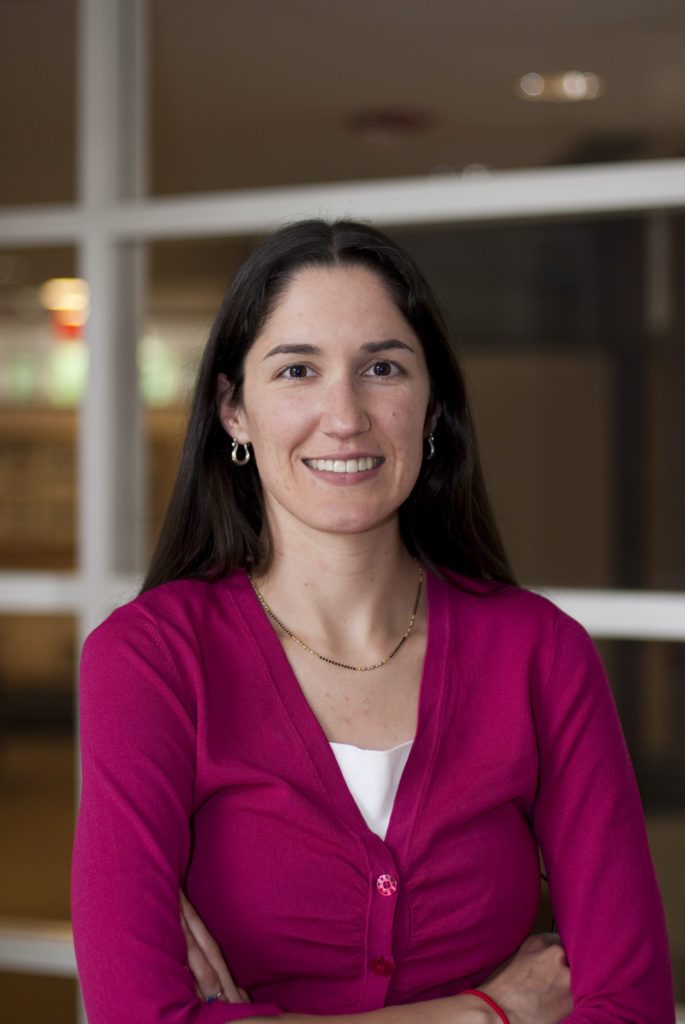
Valerie Lewis, PhD
Department of Health Policy and Management, Associate Professor
Lewis is a sociologist and policy researcher with extensive experience researching health care delivery reform, health care organizations, and racial and socioeconomic disparities in outcomes. Her research examines how health care payment and delivery reforms may affect disadvantaged patients and the health care safety net. In addition, her work seeks to understand how health care provider organizations can best coordinate and integrate care delivery across settings and providers.

Maria Mayorga, PhD
North Carolina State University – Department of Industrial and Systems Engineering, Professor
Mayorga’s goal is to address fundamental research barriers in moving from estimates of efficacy to estimates of the effectiveness of interventions or policies by explicitly considering individual patient preferences when the underlying patient population is heterogeneous. She is also interested in optimally allocating resources in Emergency Medical Service systems. To achieve these goals Mayorga will create analytical models of health systems that incorporate patient-level data. She uses techniques such as simulation, dynamic programming, applied probability, queuing theory and mathematical programming.

Donald Pathman, MD, MPH
Department of Family Medicine, Professor
Dr. Pathman’s work centers on research and evaluation of organization, state and federal programs and policies that affect the work and lives of physicians and other healthcare practitioners, and on how these, in turn, affect access and quality of patient care and clinicians’ careers. Specific areas of research have been in the effects on clinicians of organization personnel policies, clinical guideline dissemination, provider satisfaction under various employment configurations and work controls, rural health professional distribution, medical education, access to care, health disparities, and community medicine.
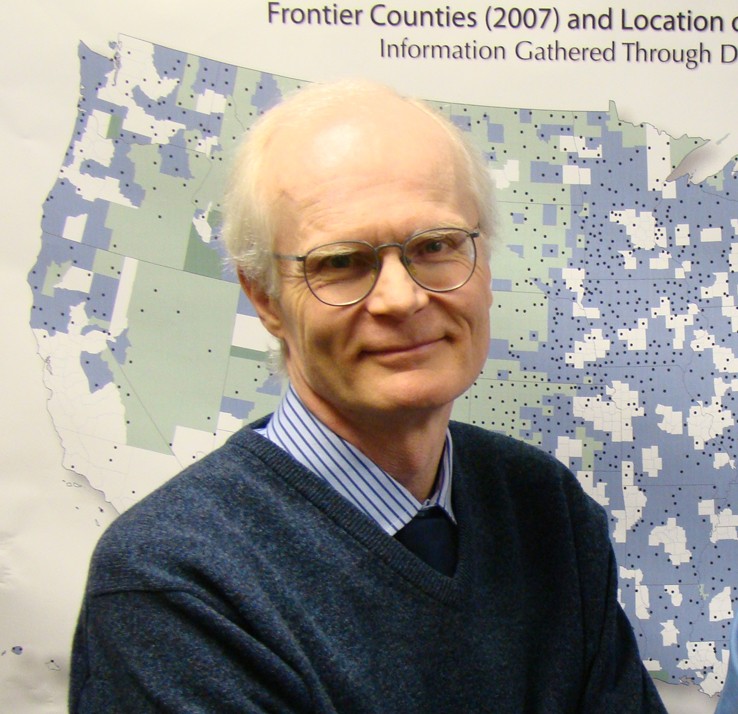
George Pink, PhD
Department of Health Policy and Management
George H. Pink, Ph.D., is a Humana Distinguished Professor in the Department of Health Policy and Management, Senior Research Fellow at the Cecil G. Sheps Center for Health Services Research, and Deputy Director of the NC Rural Health Research Program, all at the University of North Carolina at Chapel Hill. Dr. Pink teaches courses in healthcare finance and is involved in several research projects, including the Rapid Response to Requests for Rural Data Analysis and Issue-specific Rural Research Studies, Rural Health Research Grant Program and the Rural Hospital Flexibility Program Evaluation, all funded by the federal Office of Rural Health Policy.

Daniel Reuland, MD, MPH
Department of Medicine, Professor
Daniel S. Reuland, MD MPH, is a Clinical Professor of Medicine at the University of North Carolina in the Division of General Internal Medicine and Clinical Epidemiology. His research interests include developing, testing, and implementing interventions aimed at improving clinical communication, decision making, and health behaviors within primary care practice and health systems. Much of his work aims to enhance our understanding of how to make cancer screening more appropriate and patient-centered. Cross-cutting thematic interests include the adaptation of health communication interventions for Hispanic populations and shared medical decision making.

Betsy Sleath, PhD
School of Pharmacy, George H. Cocolas Distinguished Professor and Chair
Betsy Sleath, Ph.D., is the George H. Cocolas Distinguished Professor and Chair of the Division of Pharmaceutical Outcomes and Policy in the UNC Eshelman School of Pharmacy. She is a senior research fellow and director of the Child and Adolescent Health Program at the Cecil G Sheps Center for Health Services Research. She is also an adjunct professor of health policy and management and epidemiology at the UNC Gillings School of Global Public Health. Most of Sleath’s research focuses on provider-patient communication in the areas of asthma, ADHD, diabetes, and glaucoma, engaging children and parents more in medication discussions during pediatric visits, and improving patient medication adherence and other health outcomes through interventions.

Rebecca Slifkin, PhD
Department of Health Policy and Management, Professor
Prior to joining HPM, Slifkin directed the Office of Planning, Analysis and Evaluation within the Health Resources and Services Administration (HRSA), U.S. Department of Health and Human Services and served as the policy lead on Affordable Care Act implementation. From 2000-2010 Dr. Slifkin directed the North Carolina Rural Health Research & Policy Analysis Center at the Cecil G. Sheps Center for Health Services Research, University of North Carolina at Chapel Hill. Her research focused on a broad array of subjects, including critical access hospitals, pharmacy and Medicare Part D, the 340B program, Medicaid managed care, public health departments, access to care for Medicare and Medicaid beneficiaries, and Medicare reimbursement issues, including analysis of the wage index and the occupation mix.

Philip Sloane, MD, MPH
Department of Family Medicine, Professor
Dr. Sloane, a family physician and geriatrician, is a nationally recognized expert in both fields. As a researcher, he was the first family physician in the country to receive an NIH research career development award (1986), and he has been continuously funded by the NIH ever since. He co-directs (with Dr. Sheryl Zimmerman) the Program on Aging, Disability, and Long-Term Care of the Cecil G. Sheps Center for Health Services Research at UNC-CH, which has conducted over 50 funded studies of care issues related to older persons.

Kathleen Thomas, PhD
School of Pharmacy, Professor
Kathleen Thomas is a behavioral economist conducting research to enrich the knowledge-base for ways to improve access to care for underserved populations with mental health needs, ranging from minority populations, to disability policy and childhood autism. She is deeply engaged in understanding how people live – what motivates them to be transactional around the most important things in their lives – family, health, well-being.

John Thorp, MD
Department of Medicine, Associate Professor
Dr. Thorp is a Hugh A. McAlister Distinguished Professor, the Director of UNC Women’s Primary Healthcare, and the Vice Chair for Research. His research interests include preterm birth, cervical insufficiency, clinical trials, nutrition in pregnancy, health disparities, alcohol and drug abuse research, and outreach education.

Christiane Voisin, MSLS
Cecil G. Sheps Center, Associate Director for Information Services
Ms. Voisin has provided literature search support for EPC projects and systematic reviews for over 10 years. She has developed and performed literature searches for recent USPSTF topics including screening for elevated lead levels in childhood and pregnancy (topic refinement), folic acid supplementation to prevent neural tube defects and screening for latent tuberculosis infection in adults. Ms. Voisin has also provided contract literature search support for projects funded by the State of Maryland and FDA. Currently, she is the Principal Investigator on a contract with the National Library of Medicine to maintain the HSRProj (Health Services Resesarch-in-Progress) database.

Lisa Zerden, PhD, MSW
School of Social Work, Senior Associate Dean
Dr. Zerden’s work focuses on the emerging role of social work in integrated behavioral health is supported by the Health Resources Service Administration and Substance Abuse Mental Health Services Administration. She has authored over 25 peer-reviewed manuscripts and a half dozen book chapters. Since joining the faculty at UNC Chapel Hill School of Social Work in 2010 she has won numerous teaching awards including “most outstanding,” “most supportive” and “most inspiring” faculty member.

Sheryl Zimmerman, PhD
School of Social Work & School of Public Health, Kenan Distinguished Professor
Dr. Sheryl Zimmerman is a University Kenan Distinguished Professor and Associate Dean for Research and Faculty Development, School of Social Work, the University of North Carolina at Chapel Hill (UNC). She also is co-Director of the Program on Aging, Disability, and Long-Term Care, Cecil G. Sheps Center for Health Services Research, UNC. Dr. Zimmerman is widely recognized as a leading expert in long-term services and supports for older adults, especially nursing homes and residential care. Her research has been continually funded by the NIH for almost 25 years. She has written numerous books and more than 300 peer-reviewed manuscripts, and is Co-Editor in Chief of JAMDA – The Journal of Post-Acute and Long-Term Care Medicine.

Adam Zolotor, MD, DrPH
Department of Family Medicine, Professor
Adam J. Zolotor, MD, DrPH, is the President and CEO of the North Carolina Institute of Medicine and a professor of Family Medicine in at the University of North Carolina School of Medicine. Dr. Zolotor has practice family medicine in a small-town practice, rural emergency department, county health department, and academic medical center. Dr. Zolotor started his academic career in child injury research and is well known nationally for his work on the prevention of physical abuse, shaken baby syndrome, and child discipline as well as the policy issues around prevention. Dr. Zolotor joined the NCIOM in 2012 as the Vice President and has served as the President and CEO since 2014. Dr. Zolotor has led many new initiatives at the NCIOM, including the rural health plan, the child maltreatment prevention plan, the plan for Alzheimer’s and related dementia, the Task Force on Accountable Care Communities and the legislative health policy fellowship program. He also led the NCMJ through a transformative change to a mostly online distribution with dramatic increase in the statewide footprint. Dr. Zolotor still practices family medicine at the University of North Carolina. He earned both his master’s degree and doctorate in public health as well as his medical degree from the University of North Carolina at Chapel Hill. His undergraduate degree and residency training were at the University of Michigan.
Last edited: March 2019
You must be logged in to post a comment.